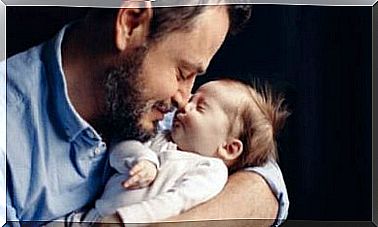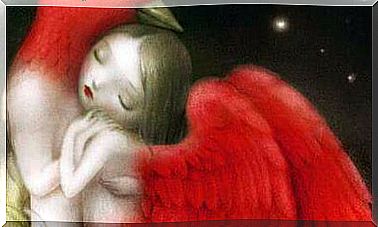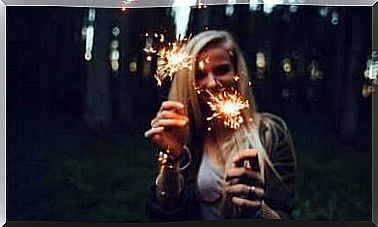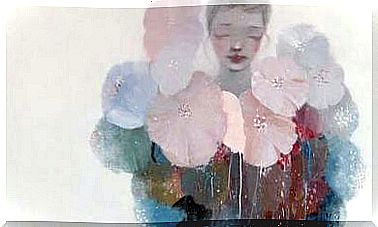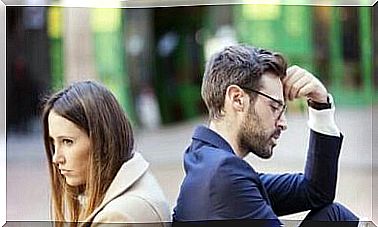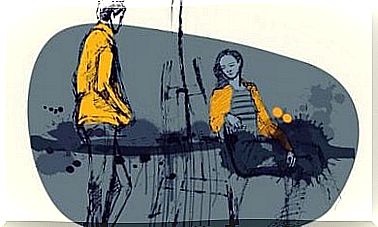El Bar – Breakfast With A Corpse: The Absurdity Of Human Nature
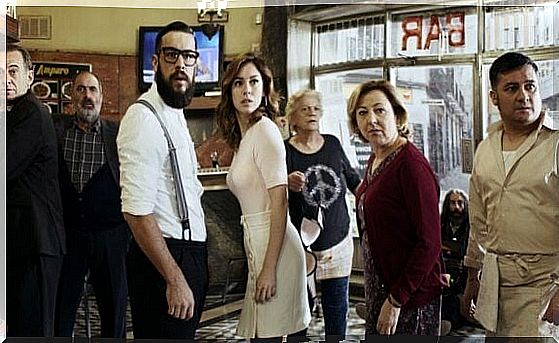
The last two films by Basque filmmaker Àlex de la Iglesia were released almost simultaneously: “ El Bar – Breakfast with a Corpse” and “ Perfect Stranger” both premiered in 2017.
But the impact of these two films was very different. While the first received relatively discreet income, the second became the director’s most successful film.
Perhaps the plot of the remake would normally have been more appealing to the general public, but the truth is, in a way, this one loses the essence of the director. El Bar – Breakfast with a corpse is closer to the particular style we’re used to from Alex de la Iglesia.
A bestial, crazy and violent style that brings out man’s worst instincts. De la Iglesia feels very comfortable in this area and in this grotesque scenario in which this film is set.
He is in his midst, it is the key to cinema and its success. Something that, on the other hand, plays a little against him: that ease makes him trust; she lets him get into his film too much and trust that something, as improbable and repetitive as it may be, can succeed.
De la Iglesia has already got us used to a diverse line-up that works really well. But mostly it limps at the end of his film. The sequence of crazy events can be fascinating at the same time, but it can also fall into an absurdity that is difficult to endure.
Personally, I can say that El Bar – Breakfast with a Corpse is a very entertaining film with a very attractive plot. However, the film can tire you and transform itself into a film that fails to shine in the filmography of this filmmaker.
A normal morning in the center of the gigantic city of Madrid; A group of people eat breakfast in a bar without fear. Some know each other, others only come to the bar for a short time. Suddenly normality is interrupted by something tragic: someone is just dying from being shot in front of the bar. The urban chaos is gone, the city seems swept empty and this group of people is trapped in this bar.
El Bar – Breakfast with a Corpse has a very interesting storyline that deepens and portrays the characters very well. Like holding a mirror up to our society. De la Iglesia managed to capture the truth behind the mask. The nature behind these roles is what we play in our society.
The bar, a non-place
The bar that we see in this film is a bar like any other without any particular charm. This bar where people from the area come to have breakfast in the morning or, like Elena, will never go back to it afterwards . In this limited but known space, people move and thus give life to the film.
Marc Augé is a French anthropologist who is credited with the term non-place. What exactly is a no-place? This is a transit point, a place where identity does not manifest itself, a space of artificial communication that does nothing for an individual.
Augé identifies highways, hotel rooms, airplanes, etc. as such non-places. That is, they are places where we will be for a short time, but with which we will hardly interact and from which we will hardly get meaningful relationships.
The non-place is the opposite of the anthropological place in which the identity is located. Non-places are passageways that are in constant motion. Rooms that today’s society is more than plagued by.
Whether a room is a non-place or not is entirely a matter of subjective judgment. It depends on what it means for each individual and how much interaction we have with them. There are also those people who see such spaces as a kind of intersection or exchange.
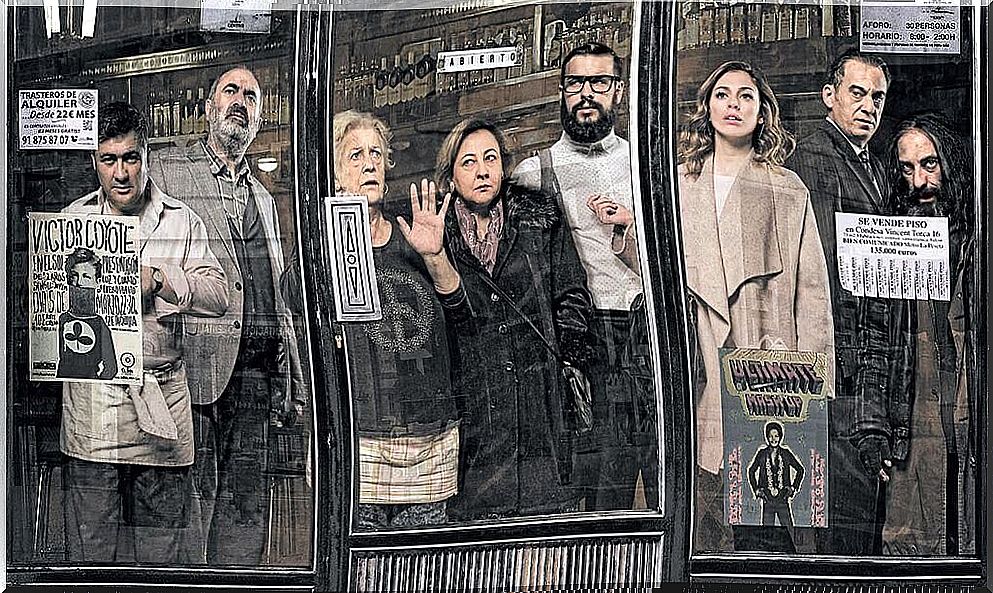
The stage on Alex de la Iglesia’s film is a bar with extreme flow and strong change. A non-place within the framework of the city that doesn’t stop growing and moving; a place of anonymity that offers protection for many people.
This is how we meet Elena. A young woman entering the bar to charge her phone; and Trini, a customer who comes to the bar every day to play the slot machine.
Elena and Trini aren’t the only characters in this small room. Because a total of 8 people remain anchored in it. Alex de la Iglesia has already shown his preference for claustrophobia in previous works because he has repeatedly locked a group of people in a place from which they cannot escape and in which they are exposed to extreme situations.
In this line he has already shone with titles like Alone Among Neighbors or My Big Night . For obvious reasons, the film El Bar – Breakfast with a corpse cannot be compared with one of the great works on a national level: The Strangler Angel (1962) by Luis Buñuel.
El Bar – Breakfast with a Corpse begins in a small room where the conversations are not particularly deep. A place that represents something different for each character. A space that seems frozen in contrast to the hectic pace of the contemporary city.
El Bar – Breakfast with a corpse: The cast as a representation of society
El Bar – Breakfast with a Corpse is a good caricature of today’s Spain because it speaks perfectly to the customs of our society. The characters are very diverse: a homeless man, a young but extremely insecure girl, a normal-looking middle-aged woman with gambling addiction, a young hipster , a former police officer who had to quit his service because of alcohol problems, etc.
As the situation grows more desperate, the characters reveal themselves for who they really are. The Spanish philosopher Eugenio Trias spoke about these very topics in his work Philosophy and Carnival . For Trías, we act in relation to conventions, in the roles that society has given us itself. These roles are very diverse, because we do not act in the same way in every situation and we do not always project the same image of ourselves.
And that’s exactly what we appreciate so much about this film. Following the example we started with, Elena’s, we see that the young girl doesn’t react in the same way when she talks to her friend on the phone and suddenly walks into the unknown bar. Likewise, all characters have a certain duality: the image they project versus the secrets they hide from others.
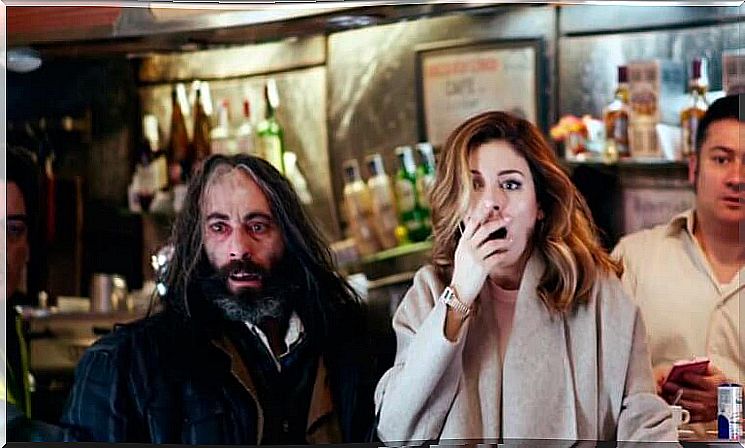
This masked dance is a reflection of our world, as well as the bars we visit every day, the modern cities where the identities are much more diverse each time. Interestingly, the personality whose identity is most stable at all times is the homeless Israel.
Israel doesn’t seem to belong to the same world as the rest. He is shown as a man who has had countless problems in his past, but never tries to deceive us during the course of the film.
As the situation slowly becomes desperate, all characters struggle to survive regardless of the others. In the center of this “save yourself who can” the masks dissolve and show the hypocrisy that surrounds our world. But Israel is not getting rid of its mask, or at least to a lesser extent. Why? Simply because Israel makes no effort to please anyone; he doesn’t want to project a distorted image of himself.
Are those we exclude the most authentic? Isreal is already in a desperate situation and is already struggling to survive on a daily basis. Because of this, he is in some way excluded from society and so, as a result, he lacks a mask.
Between the vulgar, the comic and the tragic, El Bar – Breakfast with corpse surrounds a demonstration of nature in its purest state, in its animal state. A situation in which the instinct for survival takes precedence over morality and social norms. We expose the characters and see the worst facets of people; the nature of our being in an extreme situation.
“Surrender to your appetite, my friends, and you will have conquered human nature.”
Charles Dickens

